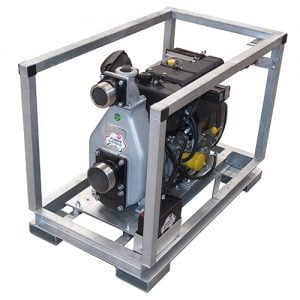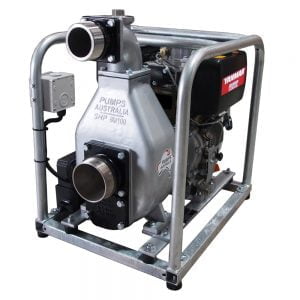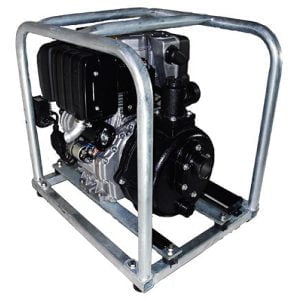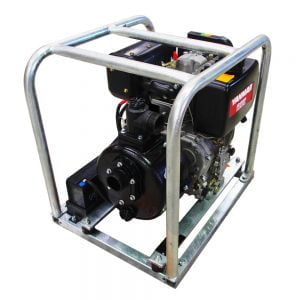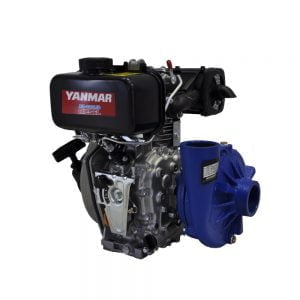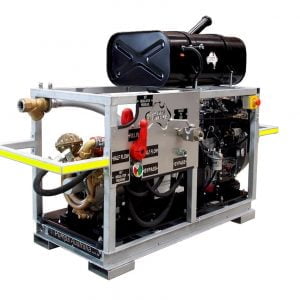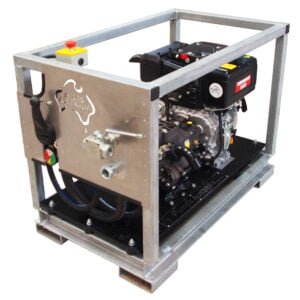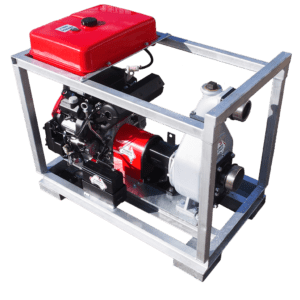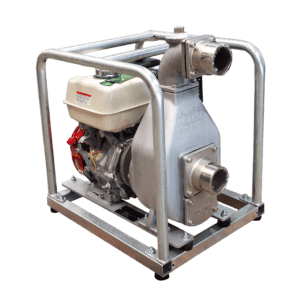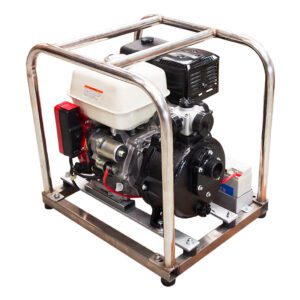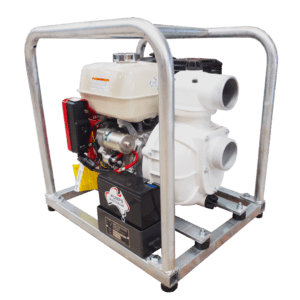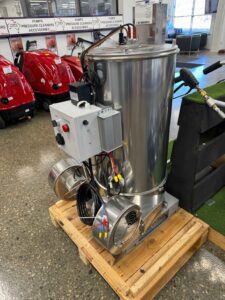The big debate: diesel vs petrol
If you’ve ever bought a new engine, a car or you have worked in the civil and industrial sectors – you’ll be well versed in the importance of choosing diesel or petrol engines. For those who are new to diesel and petrol equipment, we’re taking it back to basics to walk you through the differences between the two and why this is important to know for your purchasing decisions.
Diesel Engines
About Diesel Fuel
Diesel fuel is commonly a fractional distillate fuel oil or petroleum fuel, which is used in various motor vehicles and equipment that use a compression ignition engine. Other forms of diesel petrol such as biodiesel are becoming increasingly popular as technology evolves. As diesel fuel ignites without any spark, good compression is essential for diesel. Trains, cars, buses, boats, delivery trucks, farming equipment and more use diesel fuel as a reliable source of power.
In Australia, diesel fuel is controlled by strict regulations that oversee the quality and distribution of diesel. As the majority of diesel is outsourced overseas, storage in Australia needs close monitoring. This year, the Morrison government announced the increase of diesel storage on Australian land in order to level prices and support agricultural and mining industries. This should reduce fluctuations in prices and increase the desirability of choosing diesel engines.
Benefits of Diesel Engines
- Less energy waste especially compared with external combustion engines.
- Simple system with no need of a spark plug, allowing for more compression.
- Incredibly efficient engines, taking you further with the same amount of fuel compared to petrol engines.
- Economical, using less fuel when power is lower and requiring more when power is higher.
- Higher energy density than petrol.
- Reduced friction.
- Heavier and more durable body.
- Deliver a great amount of torque.
- Ideal engine for pulling or towing heavy loads.
- Strong, sturdy and will last a lifetime.
Drawbacks of Diesel Engines
- Production of pollutants such as CO2
- More expensive
However, it’s important to consider the efficiency of diesel engines. As diesel engines are much more economical, it means less trips filling up on fuel as well as less production of pollutants.
Diesel Engines
Pumps Australia stock a large range of diesel engines. Each diesel engine has been carefully selected in order to maintain the high quality products we’ve become renowned for. We recommend choosing either a Kohler, Kipor or Yanmar diesel engine due to their reliability, impressive performance and fuel efficiency.
Browse Pumps Australia’s range here.
Petrol Engines
About Petrol Fuel
Diesel and petrol engines work similarly as they’re both internal combustion energy sources however, if you’ve ever accidentally filled up your car with the wrong fuel… you’ll know first hand how different these two oils are. Petrol (petroleum) differs from diesel in that the oil requires the use of a small electric spark to ignite the liquid and generate power.
Benefits of Petrol Engines
- Lighter and less bulky than diesel engines
- Can be easier to work with than diesel engines
- Servicing and maintenance costs can be lower
- Price of petrol fuel is generally lower
- Faster burning fuel, which can allow for quick response times
- Runs smoothly at low RPM
- Exhaust produced by petrol engines is more eco-friendly
- Spare parts can be cheaper
Drawbacks of Petrol Engines
- Shorter lifespan compared to diesel engines
- Not as economical as diesel petrol
- Carbon emissions and pollutants
Petrol Engines
Here at Pumps Australia we recommend choosing either a Kohler, Eurotec or Honda petrol engine. These brands have proven to deliver great performance with the latest technologies. Pumps Australia offer a diverse range of petrol engines both for heavy duty as well as lighter operations. Browse our products or contact our team today.

